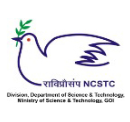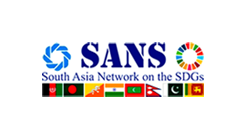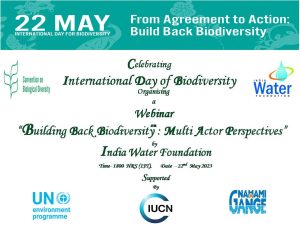
______________________________________________________________________________________
Topic: ‘‘Building back biodiversity: Integrating Multi-Actor Perspectives”
Webinar ID: 841 0444 4577
Passcode: 252817
To Join the Webinar Click Here
Passcode: 108364
INTRODUCTION
Biodiversity decline and the risk of future pandemics have many common root causes: forest degradation and habitat fragmentation that drive humans and wildlife increasingly into contact. More effective biodiversity policies can reduce the risk of future pandemics—potentially with a fraction of the economic and social costs associated with a global pandemic. The benefits and cost effectiveness of working with nature extends to other domains—including food and water security, and climate change. Fortunately, this is becoming better understood, as people have started to realize the importance of biodiversity for their own health, well-being and prosperity. To reduce future shocks and build societal resilience, the post-pandemic recovery must focus on well-being and inclusiveness, and trigger investment and behaviour changes. But to achieve this, bold, interdependent actions are needed across several fronts—each of which is necessary and none sufficient on its own.
Efforts to conserve and restore biodiversity, address climate change in ways that limit global temperature rise without imposing unintended pressures on biodiversity, and transform the way we produce, consume and trade goods and services that rely on and impact biodiversity must be increased. Unsustainable subsidies must be redirected into nature-positive incentives. The recently adopted Global Biodiversity Framework (GBF) includes a target to protect 30% of the planet’s land and seas by 2030; the Global Plastics Treaty currently under negotiation—and which could be legally binding—will include mandates around plastic environmental pollution; and the EU’s global deforestation law will require companies working in areas with high rates of deforestation to certify their products as deforestation-free. Financial-related drivers also mean organisations will have to simultaneously consider how climate disruption and loss of nature will impact their business, and how their business is driving climate change and biodiversity loss. As organisations navigate pathways towards net-zero greenhouse gases (GHG)—while also adapting to the impacts of climate change—biodiversity and nature will inevitably have to become part of the plan, as well as part of risk assessment.
OBJECTIVE
This means greater efforts are needed to address direct and indirect drivers of biodiversity loss including taking integrated and holistic approaches to planning and implementation, greater interaction among government ministries, economic sectors and society; committing to an integrated, whole-of-government, whole of society approach to improve the way we manage the natural environment and interactions with human society; further strengthen integration of gender, the role of indigenous peoples and local communities, business, finance sector and all other stakeholder engagement; and, given the present pandemic crisis, taking a “One Health” approach—which calls for managing ecosystems, including agricultural and urban ecosystems, as well as the use of wildlife, through an integrated approach, to promote healthy ecosystems and healthy people.
SPEAKERS
Eminent Speaker |
|
| Dr. Arvind Kumar |
Mr. G. Asok Kumar |
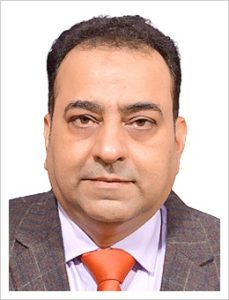 Dr. Arvind Kumar is a strategist and key-influencer in development sector with more than 28 years of experience as an author, columnist, Water activist, and specializes in concepts like ecosystem-based adaptation, water-energy-food nexus, with specific emphasis on Transversal approach of inter-linkages between water, environment and SDGs. He has published over 500 plus research articles and several books. He is a proud recipient of Achievers Award for his contribution to the Environment from International Human Rights Organization in collaboration with United Nations Information Centre, India. Dr. Arvind Kumar is a strategist and key-influencer in development sector with more than 28 years of experience as an author, columnist, Water activist, and specializes in concepts like ecosystem-based adaptation, water-energy-food nexus, with specific emphasis on Transversal approach of inter-linkages between water, environment and SDGs. He has published over 500 plus research articles and several books. He is a proud recipient of Achievers Award for his contribution to the Environment from International Human Rights Organization in collaboration with United Nations Information Centre, India. |
 Mr. G. Asok Kumar who is currently Director General, National Mission for Clean Ganga, in the Additional Secretary rank in the Ministry of Jal Shakti, Government of India. Apart from his work currently at NMCG, as Additional Secretary and Mission Director, NWM, he made many innovative initiatives in the Water sector management, the most prominent being the “Catch The Rain” campaign, with the tagline, “Catch The Rain, where it falls, when it falls” and sahi fasal campaign an awareness generation campaign implemented with the objective of weaning away the farmers from growing water intensive crops and using micro-irrigation techniques with a view to increase water use efficiency in agriculture. Mr. G. Asok Kumar who is currently Director General, National Mission for Clean Ganga, in the Additional Secretary rank in the Ministry of Jal Shakti, Government of India. Apart from his work currently at NMCG, as Additional Secretary and Mission Director, NWM, he made many innovative initiatives in the Water sector management, the most prominent being the “Catch The Rain” campaign, with the tagline, “Catch The Rain, where it falls, when it falls” and sahi fasal campaign an awareness generation campaign implemented with the objective of weaning away the farmers from growing water intensive crops and using micro-irrigation techniques with a view to increase water use efficiency in agriculture. |
| Mr. Avinash Mishra |
Dr. Susan Gardner |
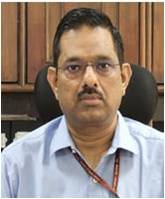 Mr. AVINASH MISHRA is Adviser (Water and Land Resources, Environment, Forests & Climate Change) of NITI Aayog (GOI).With an experience of 33years in Water Resources sector he has been working on the National Policy Planning formulation, Action Plans of the country, making Development Plans, proposals for the State Governments. He is Member of various Committees on Water Resources including the Committee on Water Resources of Bureau of Indian Standards. Mr. AVINASH MISHRA is Adviser (Water and Land Resources, Environment, Forests & Climate Change) of NITI Aayog (GOI).With an experience of 33years in Water Resources sector he has been working on the National Policy Planning formulation, Action Plans of the country, making Development Plans, proposals for the State Governments. He is Member of various Committees on Water Resources including the Committee on Water Resources of Bureau of Indian Standards. |
 Dr. Susan Gardner with over three decades of experience is Director of the Ecosystems Division of the UN Environment Programme where she leads global programmes to promote nature-based solutions for sustainable development including for food systems transformation, climate resilience, global biodiversity protection and disaster risk reduction. Her work on combating ocean pollution included leading the process that achieved a global agreement to negotiate a treaty to end plastic pollution. She was awarded the Gold Medal for Exceptional Services from the U.S. Environmental Protection Agency, the highest national honor award this agency bestows. Dr. Susan Gardner with over three decades of experience is Director of the Ecosystems Division of the UN Environment Programme where she leads global programmes to promote nature-based solutions for sustainable development including for food systems transformation, climate resilience, global biodiversity protection and disaster risk reduction. Her work on combating ocean pollution included leading the process that achieved a global agreement to negotiate a treaty to end plastic pollution. She was awarded the Gold Medal for Exceptional Services from the U.S. Environmental Protection Agency, the highest national honor award this agency bestows. |
| Dr. Sasha Koo-Oshima | Dr. Katinka Weinberger |
 Dr. Sasha Koo-Oshima is Head of FAO Water and Deputy Director, Land and Water Division. Sasha has over 25 years of experience in international assistance and policy development in agriculture water and environment/natural resource management. A Senior Advisor/Director of US-China Clean Water Action Plan at the U.S. EPA, and Secretariat of OECD she directed and managed international water programs/compacts with donor agencies. She published extensively on international water issues, such as the UN World Water Development Reports, FAO-WHO Wastewater Reuse Guidelines for Agriculture etc. In addition, she served on various international technical advisory panels for the GEF and the Ramsar Convention. Dr. Sasha Koo-Oshima is Head of FAO Water and Deputy Director, Land and Water Division. Sasha has over 25 years of experience in international assistance and policy development in agriculture water and environment/natural resource management. A Senior Advisor/Director of US-China Clean Water Action Plan at the U.S. EPA, and Secretariat of OECD she directed and managed international water programs/compacts with donor agencies. She published extensively on international water issues, such as the UN World Water Development Reports, FAO-WHO Wastewater Reuse Guidelines for Agriculture etc. In addition, she served on various international technical advisory panels for the GEF and the Ramsar Convention. |
 Dr. Katinka Weinberger is currently Chief of the Environment and Development Policy Section (EDPS) in UNESCAP responsible for the assessment of key emerging issues related to the environment and the 2030 Agenda for sustainable development and coordinates regional responses, including on climate ambition, food systems, ecosystems health and environmental governance. She has twenty-five years of experience in agriculture, environment and sustainable development at international level, working through multistakeholder processes, and focusing on the interconnections of economic, social and environmental dimensions of development. Dr. Katinka Weinberger is currently Chief of the Environment and Development Policy Section (EDPS) in UNESCAP responsible for the assessment of key emerging issues related to the environment and the 2030 Agenda for sustainable development and coordinates regional responses, including on climate ambition, food systems, ecosystems health and environmental governance. She has twenty-five years of experience in agriculture, environment and sustainable development at international level, working through multistakeholder processes, and focusing on the interconnections of economic, social and environmental dimensions of development. |
| Mr. Vishwaranjan Sinha | Mr. Aseem Kumar |
 Mr. Vishwaranjan Sinha is working as a Programme officer, Water and Wetlands, South Asia, and is based at IUCN Asia regional Office in Bangkok. He has more than 12 years of experience working on regional water governance issues in the Ganges, Brahmaputra, Meghna and the Mekong region and has co-authored many IUCN publications. Mr. Vishwaranjan Sinha is working as a Programme officer, Water and Wetlands, South Asia, and is based at IUCN Asia regional Office in Bangkok. He has more than 12 years of experience working on regional water governance issues in the Ganges, Brahmaputra, Meghna and the Mekong region and has co-authored many IUCN publications. |
Mr. Aseem Kumar has a long and diverse experience in senior positions representing and enhancing the Institution’s visibility and image. He has successfully led and built teams to achieve results, Strategic Decision Making, Communication both internal and external. Developing partnerships, Interface with stakeholders, research based high impact Reporting, Project Management are parts of his toolkit. |
| Mr. Vineet Sarin | Ms. Shweta Tyagi |
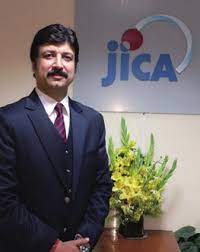 Mr. Vineet S. Sarin, works at Japan International Cooperation Agency (JICA) as Chief Development Specialist. He is the National Sector Leader for Forestry & Natural Resource Management. He has over 27 years of experience in the sector, which is one of JICA’s core sector of operations in India with a cumulative commitment of JPY 314 billion ( approx. INR 19,500 crores or US$. 2.27 billion), covering 24 states in India in the past three decades. Mr. Vineet S. Sarin, works at Japan International Cooperation Agency (JICA) as Chief Development Specialist. He is the National Sector Leader for Forestry & Natural Resource Management. He has over 27 years of experience in the sector, which is one of JICA’s core sector of operations in India with a cumulative commitment of JPY 314 billion ( approx. INR 19,500 crores or US$. 2.27 billion), covering 24 states in India in the past three decades. |
 Shweta Tyagi is Chief Functionary, India Water Foundation. She is results-focused development sector professional with a 20 years of demonstrated history and a proven ability to manage project teams to deliver multiple projects and programmes across diverse sectors of sustainable Development, Water and Sanitation, Social Development, Livelihood Generation, climate change etc. Excellent knowledge of project management and strategic planning of partnership creation and coordination, as well as advising decision-makers and strengthening capacities. Experience of Natural Resource management among rural communities for implementing community based projects with an objective towards strengthening sustainable livelihoods. Shweta Tyagi is Chief Functionary, India Water Foundation. She is results-focused development sector professional with a 20 years of demonstrated history and a proven ability to manage project teams to deliver multiple projects and programmes across diverse sectors of sustainable Development, Water and Sanitation, Social Development, Livelihood Generation, climate change etc. Excellent knowledge of project management and strategic planning of partnership creation and coordination, as well as advising decision-makers and strengthening capacities. Experience of Natural Resource management among rural communities for implementing community based projects with an objective towards strengthening sustainable livelihoods. |



